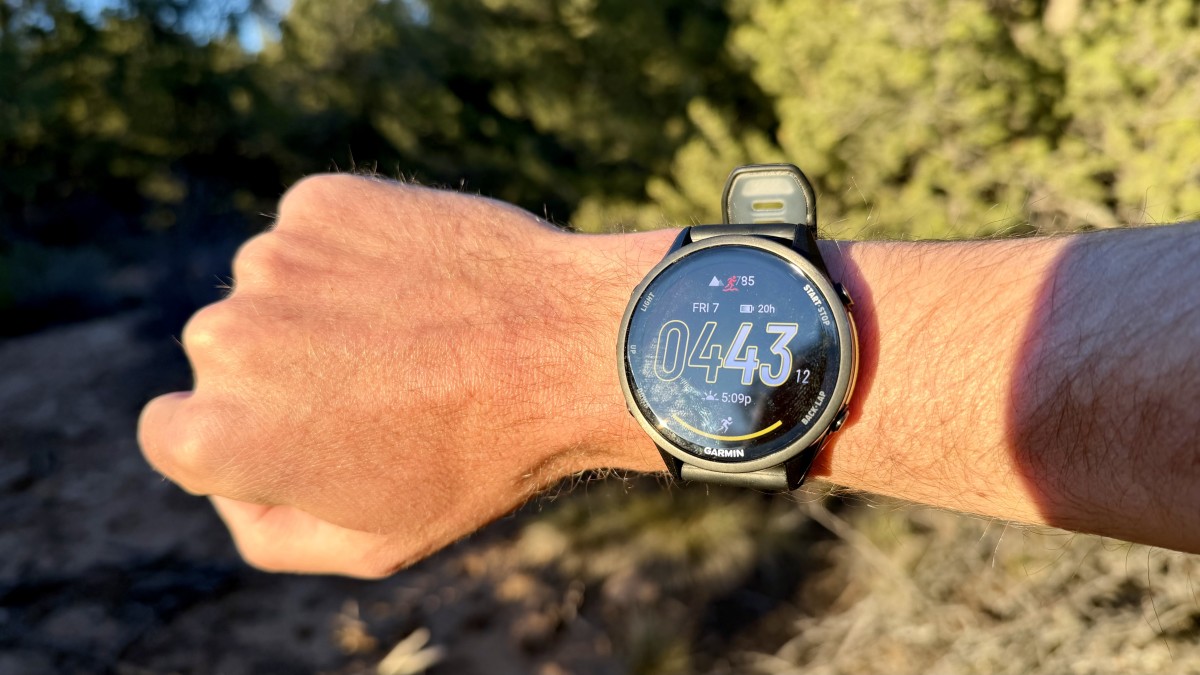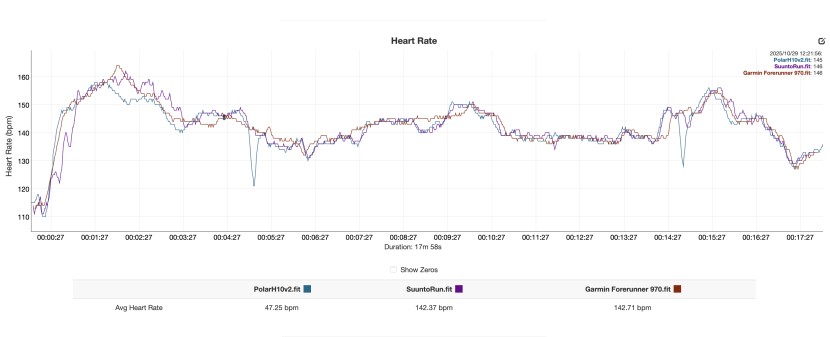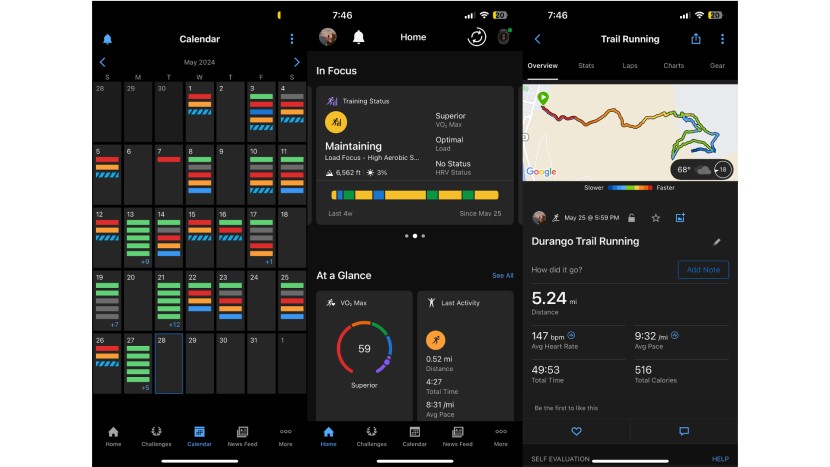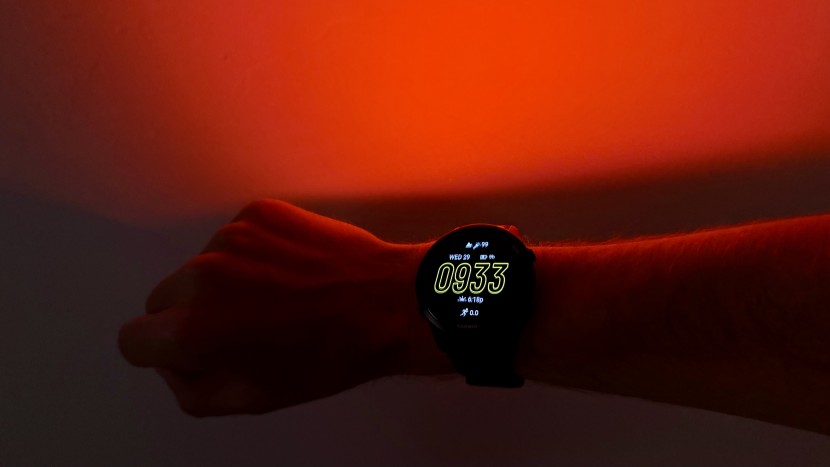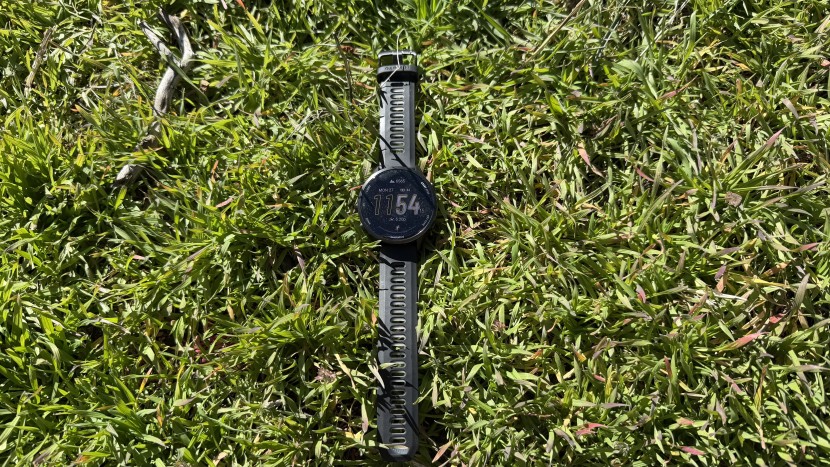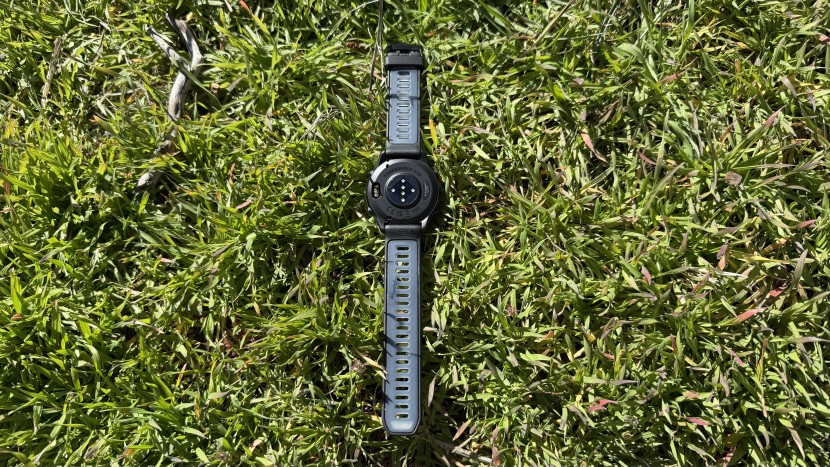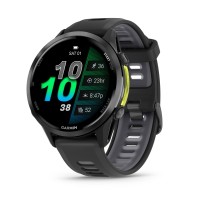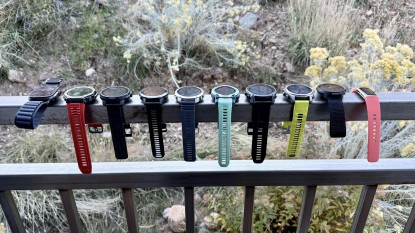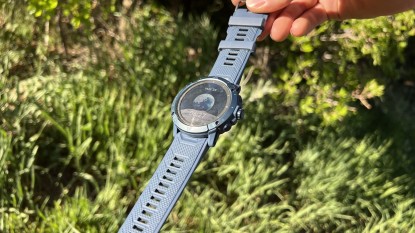
Our Verdict
Our Analysis and Test Results
In this iteration of the Forerunner, Garmin has made major upgrades to the AMOLED screen, added a flashlight, a new speaker and microphone, and improved the satellite chip. With other upgrades such as an evening report, a running economy metric, and an impact load metric, you can be confident knowing you have the best hardware and software in the market. Unfortunately, all of this comes at a cost, as the Forerunner 970 is significantly more expensive than its predecessor.
Accuracy
The Forerunner 970 continues Garmin's strong reputation for accurate tracking across both GPS and heart rate. The dual-frequency, multi-GNSS system locks on quickly and stays consistent across a variety of terrain, from open roads to wooded trails and city routes. Tracks line up cleanly and evenly in areas with tree cover or nearby buildings, proving that Garmin's satellite performance is among the best available. The 970 offers pinpoint accuracy, measuring exactly 1.99 miles for our known 2-mile test course.
Heart rate accuracy is equally dependable for most activities, maintaining close agreement with our Polar chest strap during steady runs and workouts. As with any wrist-based sensor, there may be slight delays during sudden intensity changes; however, overall performance is excellent. Resting HR testing matched the Polar H10 heart-rate monitor exactly, with an accuracy within +/- 1 BPM.
Activity Use
I've gone through numerous GPS watch sizes and weights over the years, and this one feels like the sweet spot in terms of fit and weight. The 47 mm case feels small enough for running, but large enough for slower-paced activities like hiking and daily use. One complaint I have with the larger models is that the band needs to be tighter to reduce movement, which makes it less comfortable to wear for long periods of time. This is the first iteration of a lighter Garmin watch that matches the performance of the Fenix and Enduro series (except for the battery life).
The Forerunner 970 adds a few additional sport modes like rucking, expedition, bouldering, and obstacle course. There are also new sports metrics, such as Running Tolerance and Impact Load, along with updates to the coaching modes, like daily suggested workouts. Some helpful new activity tools, such as race time projection and multi-sport activity customization, further bolster this watch's utility. With the new speaker, you can also receive callouts for lap times, which is helpful when you are too focused to look at your watch.
As with previous models, you still get fully detailed maps with the ability to load routes and reroute with Garmin's road and trail network. For complex navigation tasks, however, I still prefer to use my phone – the watch is best suited for quick navigation, like confirming which intersection to take. If you always have your phone with you, anyway, you may be content with a GPS watch that just has breadcrumb mapping.
Everyday Use
A watch at this price point needs to be useful outside of activities, and the 970 performs great as a smartwatch. The large AMOLED display supports always-on functionality, allowing you to view the time even without waking the display. This new display is now brighter with a better resolution than the previous 965. Garmin has also improved the auto-brightness adjustment of the AMOLED screen to maximize battery life. You can now take calls with the watch instead of pulling out your phone, and it also features notifications and a voice assistant for setting items like timers or alarms. There is also a new night report that complements the previous morning report. These dual reports provide valuable insights that can help inform today's or tomorrow's training plan. The 970 will also inform you of your sleep score and any expected fatigue, which can help guide your recovery.
As with all previous Garmin models, you can expect an easy-to-use user interface. The glance and widget panes allow you to quickly change settings or view helpful information, such as weather or heart rate. All of your workouts and daily stats can be viewed via the Garmin Connect app, which syncs with the watch, displaying monthly and yearly trends as well as health metrics such as resting HR, VO2 Max, and fitness age. These can also be seen via the watch, but the phone app is necessary for more detailed analyses. Through the app, you can also activate the Find My Watch feature and view daily fitness challenges, such as stand goals and movement time. Some users may prefer third-party apps, such as Strava and Apple Health, to view their data, which are also available.
Extra Features
The Forerunner 970 is in the premium tier for Garmin watches, so expect all of the extras and the most cutting-edge tech. The 970 introduces new features, including skin temperature measurement, an LED flashlight, and an FDA-certified electrocardiogram (ECG), none of which were previously available on the Forerunner 965. These help the watch provide more accurate recovery metrics and better inform individuals with medical conditions that require more frequent monitoring. As with previous versions, you'll get Garmin Pay, offline music, and safety features like crash detection and live tracking.
ConnectIQ is Garmin's marketplace for additional apps and watch faces; most of these are free, offering plenty of customization options. This marketplace is far larger than any of the competing brands, so if watchface design is something you are particular about, this is a great benefit to the ecosystem.
Wearability
Weighing only 1.97 ounces, the Forerunner 970 is the lightest fully featured GPS watch on the market. The 47 mm titanium bezel has a premium feel without being too flashy. The sapphire crystal display does a great job protecting against scratches, and the polycarbonate body is lightweight and durable. The thin body helps it glide underneath jackets and shirt cuffs, and its dedicated buttons maintain full functionality even when the touch screen is unavailable. This has long been a must-have for me, as some other watches I've used are primarily touchscreen only, which can present issues from time to time.
The watch strap on the 970 requires a tool to attach, something to keep in mind if you frequently change bands. The subtle stretch in the band acts like a micro-adjustment, providing additional stability without reducing circulation. If you're looking for a lightweight watch that's subtle and not overly flashy or rugged looking, the Forerunner 970 is easily one of the most comfortable GPS watches I've tested.
Battery Life
Battery life on the Forerunner 970 is excellent for a performance-focused GPS watch. For general use as a smartwatch, it easily lasts over a week on a single charge, which can be significantly extended with lighter usage or by disabling the always-on display. During GPS activities, battery performance depends on the mode used, with multi-band and high-accuracy settings drawing more power. During tests, I managed to record 25 hours of continuous data using the normal GPS mode, which is more than enough for a full training day or most long-distance events. The battery life of the 970 is slightly less than that of the previous 965 version, which appears to be due to the increased screen brightness.
Garmin's battery modes are clear and easy to change in the activity selection screen. This makes it easy to know which mode to choose based on your intended duration. The included USB-C cord can be plugged in while the watch is removed to extend recording time. However, if you're planning to record long adventures or races, consider a model with longer battery life. Devices with the e-ink-style MIP display have significantly better battery life, which is something to consider for ultra-athletes.
Should You Buy the Garmin Forerunner 970?
The Forerunner 970 is an easy recommendation as the best running GPS watch on the market. You get the best metrics and training recommendations, fully detailed mapping, and a dedicated flashlight in a slim, lightweight body. Industry-leading accuracy is achieved with the new satellite chip and Elevate 5 HR sensors. The only downsides are cost and battery life, particularly when compared to other watches with an MIP display. The bright AMOLED screen can suck battery life, especially when set to always-on, which will get you around 2-3 days depending on usage.
What Other GPS Watches Should You Consider?
If you're looking for better battery life, we recommend the slightly more rugged Garmin Fenix 8 Solar, which has an MIP e-ink style display and is capable of solar charging. If you like the form factor of the Forerunner 970 but it's a bit out of your price range, we highly recommend the Suunto Run. It doesn't offer as many features as these premium Garmin watches, but it's an excellent choice for athletes who want a simpler GPS watch.
| Awards | Best Overall GPS Watch |
|---|---|
| Price | $750 List Check Price at Amazon |
Overall Score  |
|
| Star Rating | |
| Bottom Line | Delivering brighter visuals, sharper GPS accuracy, and elite-level training tools, all in one convenient package |
| Pros | Lightweight, accurate, highly customizable data screens, leading health metrics, flashlight |
| Cons | Expensive, shorter battery life |
| Rating Categories | Garmin Forerunner 970 |
| Accuracy (30%) | |
| Activity Use (20%) | |
| Everyday Use (15%) | |
| Extra Features (15%) | |
| Wearability (10%) | |
| Battery Life (10%) | |
| Specifications | Garmin Forerunner 970 |
| Measured Body Diameter | 49.0 mm |
| Screen Type | AMOLED |
| Measured Thickness | 15.0 mm |
| Measured Battery Life with GPS | 25 hours |
| Sensors Included | Heart rate, altimeter, barometer, compass, temperature, blood oxygen level |
| Measured Charging Time | 95 min |
| Measured Screen Width | 37.0 mm |
| Measured Weight | 1.97 oz |
| Battery Life Claims by Manufacturer | Smartwatch mode: Up to 15 days GPS-Only GNSS mode: Up to 26 hours SatIQ (AutoSelect) GNSS mode: Up to 23 hours All-Systems GNSS mode + Multi-Band: Up to 21 hours GPS-Only GNSS mode with music: Up to 14 hours SatIQ (AutoSelect) GNSS mode with music: Up to 13 hours All-Systems GNSS mode + Multi-Band with music: Up to 12 hours |
| Navigation | Detailed, back to start |
| Music Options | Downloaded control, storage |
| Touchless Payment | Yes |
| Sleep Tracking | Yes |
| Water Resistance (Max Depth) | 50 m |
| Main Software App | Garmin Connect |
| Compatible with Other Software Ecosystems | Yes |
| Watch Face Material | Sapphire Crystal |
| Battery Type | Rechargable lithium ion |
| Bezel Material | Titanium |
| Case Material | Polymer |
| Strap Material | Silicone |
| Tools Required to Change Band | Yes |
| Model Tested | Standard |
| Size Tested | One size only |
| Warranty Offered | 1 year |


